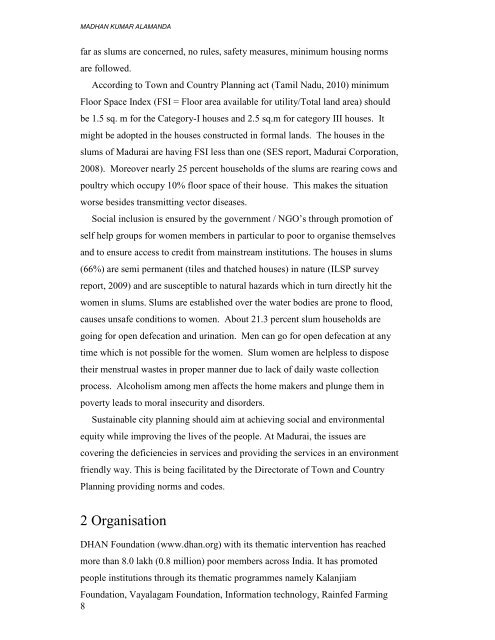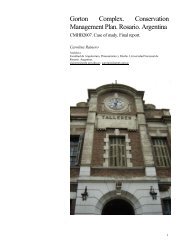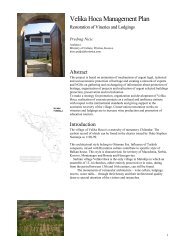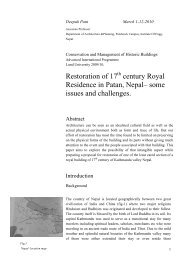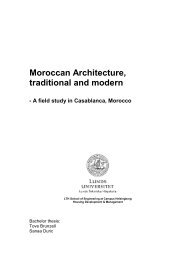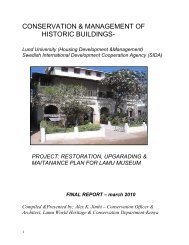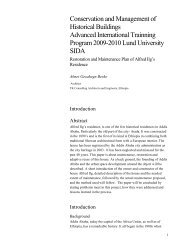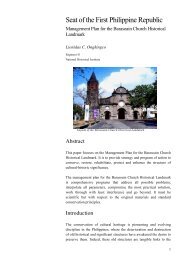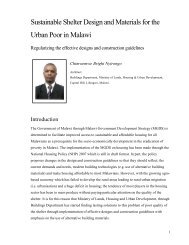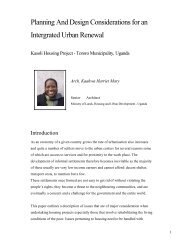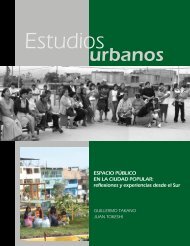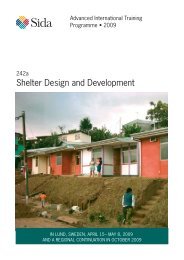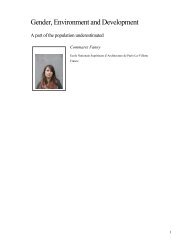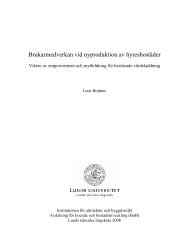Sample - Individual Work paper - HDM
Sample - Individual Work paper - HDM
Sample - Individual Work paper - HDM
You also want an ePaper? Increase the reach of your titles
YUMPU automatically turns print PDFs into web optimized ePapers that Google loves.
MADHAN KUMAR ALAMANDAfar as slums are concerned, no rules, safety measures, minimum housing normsare followed.According to Town and Country Planning act (Tamil Nadu, 2010) minimumFloor Space Index (FSI = Floor area available for utility/Total land area) shouldbe 1.5 sq. m for the Category-I houses and 2.5 sq.m for category III houses. Itmight be adopted in the houses constructed in formal lands. The houses in theslums of Madurai are having FSI less than one (SES report, Madurai Corporation,2008). Moreover nearly 25 percent households of the slums are rearing cows andpoultry which occupy 10% floor space of their house. This makes the situationworse besides transmitting vector diseases.Social inclusion is ensured by the government / NGO’s through promotion ofself help groups for women members in particular to poor to organise themselvesand to ensure access to credit from mainstream institutions. The houses in slums(66%) are semi permanent (tiles and thatched houses) in nature (ILSP surveyreport, 2009) and are susceptible to natural hazards which in turn directly hit thewomen in slums. Slums are established over the water bodies are prone to flood,causes unsafe conditions to women. About 21.3 percent slum households aregoing for open defecation and urination. Men can go for open defecation at anytime which is not possible for the women. Slum women are helpless to disposetheir menstrual wastes in proper manner due to lack of daily waste collectionprocess. Alcoholism among men affects the home makers and plunge them inpoverty leads to moral insecurity and disorders.Sustainable city planning should aim at achieving social and environmentalequity while improving the lives of the people. At Madurai, the issues arecovering the deficiencies in services and providing the services in an environmentfriendly way. This is being facilitated by the Directorate of Town and CountryPlanning providing norms and codes.2 OrganisationDHAN Foundation (www.dhan.org) with its thematic intervention has reachedmore than 8.0 lakh (0.8 million) poor members across India. It has promotedpeople institutions through its thematic programmes namely KalanjiamFoundation, Vayalagam Foundation, Information technology, Rainfed Farming8


